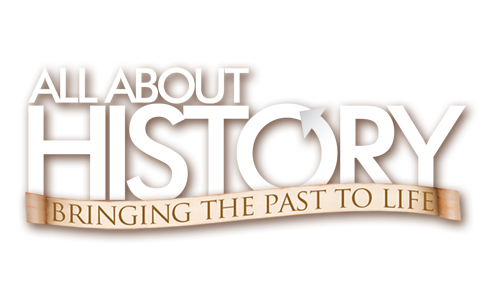SPONSORED: Meet astronaut Chris Hadfield on his tour of the UK!
Courtesy of Unique Lives & Experiences, the former commander of the International Space Station will tell the incredible story of his time in space
In January, Chris Hadfield returns to the UK for a short series of innovative and inspirational shows, which open up the world of space exploration for everyone. Featuring photos and videos from his own collection Chris tells his own incredible story and reveals amazing stories about life on the International Space Station (ISS).
An accomplished and entertaining speaker, Chris has given Ted Talks and continues to educate and inform millions worldwide with his books, music and forays into social media.
As The Guardian wrote:
“He is a fighter pilot, a test pilot and an aeronautical engineer capable of docking a rocket ship. But that’s not why the world loves him. Of the hundreds of astronauts who have gone into space, none has humanised it quite the way Hadfield has.”
Chris will be at the following venues:
Bristol Hippodrome: 18 January
New Wimbledon Theatre: 23 January
Usher Hall, Edinburgh: 20 January
BGE Theatre, Dublin: 22 January
Tickets are now available from: http://uniquelives.com/chris-hadfield-uk
Should you need any convincing that an evening with Chris Hadfield is a revelation, share in some of these excerpts from an interview in issue 56 of All About Space.
What did it take for the kid that was raised on a farm to go to space?
When I first dreamed and then decided to become an astronaut, it wasn’t hard – it was impossible. There were no Canadian astronauts; they didn’t exist. We didn’t even have a space agency.
But I was lucky enough to see the first people walk on the Moon. On that morning it was impossible to walk on the Moon and yet by that night Neil [Armstrong] and Buzz [Aldrin] had put footprints up there. I realised as a nine-year-old boy that impossible things happen as a result of an enormous amount of work over a long period of time. That’s what gave me permission to think I could be an astronaut.
Before being commander, you also helped to build the ISS in 2001, becoming the first Canadian to walk in space…
Spacewalks are dangerous because you’re just wearing an inflated cloth suit and so we don’t do them unless we have to, but sometimes you need human interpretation, intuition, adaptability, cunning and scheming. You need the human mind out there and the dexterity of ten fingers to do the complicated things. Try and teach a robot to open a stuck drawer.
Almost everything on a spacewalk is like a stuck drawer. It takes a lot of finesse. During my second spaceflight I went on two spacewalks. It’s the most magnificent experience to be alone in the universe with infinite blackness all around you and this big silver, white and gold ship that you’re helping to construct. You’re like a little construction ant on outside trying to build this thing.

Hadfield has flown two Space Shuttle missions and served as commander of the International Space Station. Image Credit: NASA
Did it change you?
The process is long. I trained for that spacewalk for four and a half years. That’s longer than I was at university, just for that one spacewalk. So the complexity is enormous and that process changes you. The spacewalk is only a few hours; I spent 15 hours outside over two spacewalks. So that’s a very small fragment of time, but it’s incredibly rich and it makes every second worth it.
My simulation was good enough that the spacewalk felt comfortable and familiar; I knew what I was doing. I felt confident. I knew that no matter what went wrong I could deal with it. I was blinded during the spacewalk. We had contamination in the suit and it blinded both of my eyes for about half an hour. So it was pretty unexpected to be outside the spaceship, blind and holding on, hoping my vision would clear.
Were you afraid?
I wasn’t really afraid because it was just that my eyes were not working. I could still breathe and hear. So I was more worried that we weren’t going to get the spacewalk done because time is really tight. It’s like when you get a bug in your eye, or if you get shampoo in your eyes so that you can’t see in the shower, you’re not really afraid you’re just sort of irritated. Fortunately, it eventually cleared and I could see again and so we got everything done.
It was a great thrill and a challenge to be the commander of a spaceship. There’s only one for the world. We have one space station for the planet right now; one ISS that we’ve been living on for over 15 years. That’s a pretty high responsibility because if you make a mistake you could ruin the ship or kill everybody or both. You make crucial decisions every day. That’s just the way it is, so you take it very seriously. If you have people outside on spacewalks you’re extremely vulnerable. What if there’s a fire or a meteorite hits the ship? There are all sorts of what-ifs that are very serious.
Four days before we came home our ship developed a significant ammonia leak. We had to do an emergency spacewalk on one day’s notice to save the ISS or we probably would’ve had to abandon it. So it’s constant very high-stakes, but we were ready. We were trained. We visualised all these failures. We’d spent a significant amount of our adult lives being ready. So we dealt with it and set records for the amount of science done in space and, with a healthy spaceship, we came home feeling hugely satisfied.
Unique Lives & Experiences is a very special lecture series designed to motivate, challenge and enlighten anyone with an open mind and a strong desire to learn from the personal experiences of our distinguished speakers.





